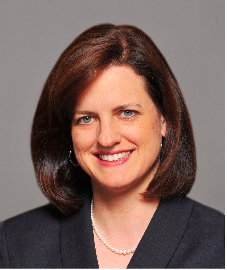 As of January 1, 2015, highly paid government workers in North Carolina will no longer be allowed to boost their pension benefits with accumulated sick leave or other perks, according to a law signed over the summer by North Carolina Gov. Pat McCrory.
As of January 1, 2015, highly paid government workers in North Carolina will no longer be allowed to boost their pension benefits with accumulated sick leave or other perks, according to a law signed over the summer by North Carolina Gov. Pat McCrory.
The law also lowers the “vesting period” for benefits of public employees from 10 years to 5 years.
Pension “spiking”, as the practice is sometimes called, happens when workers accumulate sick leave, vacation time, bonuses and other benefits until the year before they retire. In their final year on the job, they cash out all those benefits—inflating their final year salary.
Since final year salaries play a big role in calculating a worker’s pension benefits, spiking can increase a retiree’s annual pension by thousands of dollars per year. The practice is currently legal in most states.
But the practice is now outlawed in North Carolina for all state and local workers who make $100,000 or more annually. From the News & Observer:
The new law, which takes effect Jan. 1, comes after The News & Observer in November reported how four community college presidents and their boards converted tens of thousands of dollars in perks to pay as they neared retirement age, creating pension boosts the retirement system will have to subsidize. The retirement system is funded by contributions from employees, taxpayers through employer contributions, and investment returns.
“This law prevents North Carolina state employees from having to subsidize artificially inflated pensions of high earners at the end of their careers,” McCrory said in a statement. “It protects the retirement system from abuse and ensures state employees are rewarded for their important investments in our state.”
State Treasurer Janet Cowell has claimed in the past that pension spiking in the state is limited to only the highest-paid state workers. Thus, the current legislation outlaws spiking for those workers by creating a “contributions cap”. The News & Observer explains:
The law creates a new method of identifying pension spiking through a contributions cap that is based on the actual amount of money state and local employees and employers put into the retirement system. Those hired before Jan. 1 would continue to receive the difference created through the pension spiking, but it would have to be paid for by that unit of government, not the retirement system. Those hired after Jan. 1, would have the choice of the employer paying, the employee paying or a reduced benefit.
The law also returns the pension vesting period for state and local employees to five years. Three years ago it was doubled to 10 years as a cost saving measure, but Cowell’s staff said the savings were minor, roughly $1 million a year, while making the state less competitive in the job market.
“Returning to a five-year vesting period is critical step in North Carolina becoming more competitive in recruitment and retention relative to other public and private employers,” Cowell said in the release.

